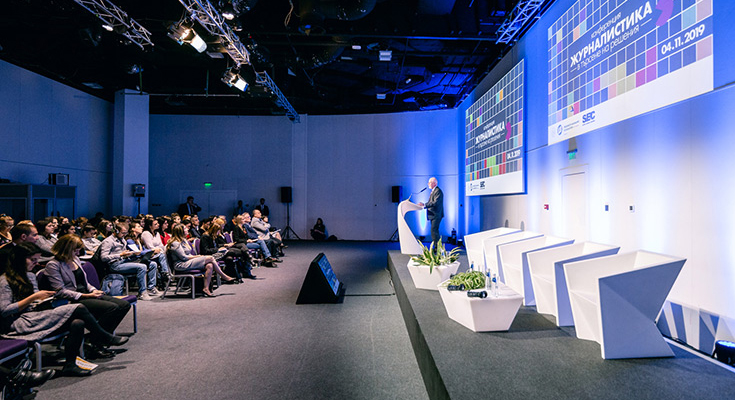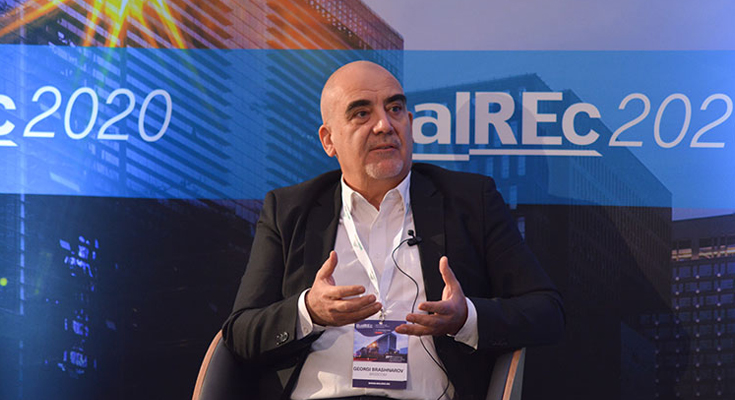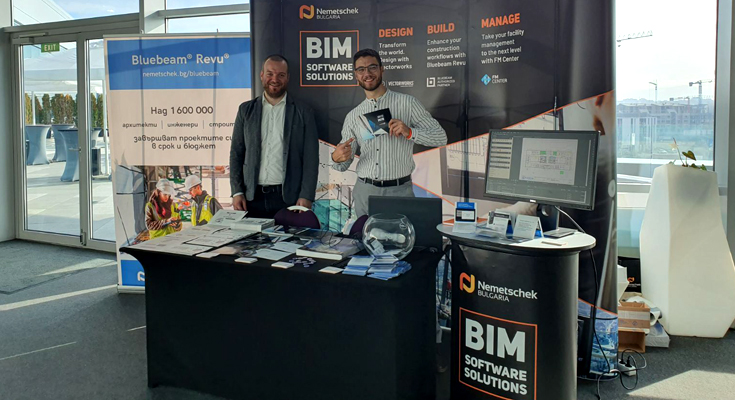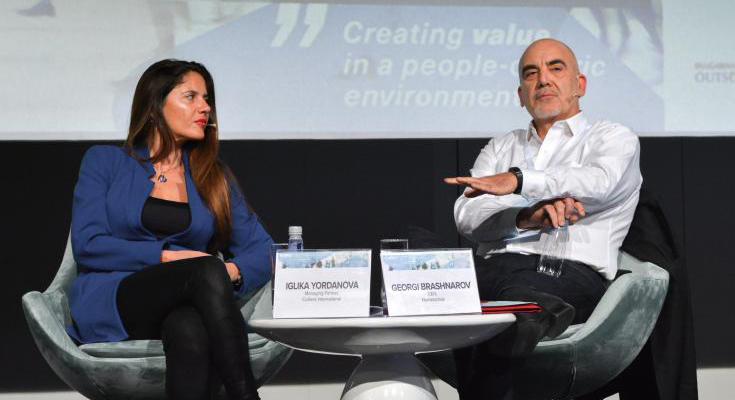Solutions Journalism: a Step Forward

Driven by our firm belief in freedom of speech and independent media, Nemetschek Bulgaria joined as sponsors the conference on Solutions Journalism, held on November 4th 2019 at Sofia Event Center. This is the second event organized by the Association of European Journalists-Bulgaria (AEJ-Bulgaria) that Nemetschek Bulgaria sponsors, continuing the cooperation between the organizations.
It was in 2019 that Bulgaria was rated last on media freedom in EU according to Reporters Without Borders Press Freedom Index, with media freedom in Central and East European countries (Hungary and Poland to name a few) worsening significantly as well. Therefore, international events featuring high-ranking professionals in investigative and Solutions Journalism, like the one organized by AEJ-Bulgaria, are most welcome and can hopefully contribute to media pluralism and freedom.
The conference started with the recently appointed US Ambassador in Bulgaria – Her Excellency Mrs. Herro Mustafa giving a welcome address. This was one of her first public appearances in Sofia and attracted the attention of quite a few local media. Her Excellency opened her speech with a few sentences in Bulgarian and continued in her native English, pointing out the importance of independent journalism and mentioning that her father was an investigative reporter.
Reiner Adam – project director of co-organizers Friedrich Naumann Foundation in Southeast Europe, Lenko Lenkov, program director at America for Bulgaria Foundation and finally Maria Cheresheva – vice president of AEJ-Bulgaria followed with short welcome speeches.
The conference main event was a lengthy and highly informative presentation by David Boardman – chair of the board of the Solutions Journalism Network, dean of the School of Media and Communication at Temple University in Philadelphia and longtime senior editor of the influential The Seattle Times newspaper. With some 30+ years of experience in investigative journalism, Boardman is a professional that has seen it all. In his time as senior editor, The Seattle Times journalists were awarded 6 Pulitzers for top-notch investigative publications, exposing corrupt officials or dangerous state practices in the US.
David Boardman has since invested much time and effort in popularizing what is today trademarked as Solutions Journalism – the logical continuation of the well-known investigative work, a new approach to news reporting focusing on the responses to social issues as well as the problems themselves. Solutions Stories take on already exposed and known issues, going through possible solutions, explaining their pros and cons, serving as one big process that involves direct and constant communication with readers.
Boardman presented a number of examples of successful Solutions Stories with a special emphasis on their impact – both on public institutions and on society (ineffectual officials sacked, public dialogue initiated, racial/cultural acceptance initiated) . He underlined this as probably the most important characteristic of Solutions Journalism – it is tough, complex, time- and money-consuming, but when done right, can have a considerable and positive after-effect. Thus, Solutions Journalism isn’t simply investigative or informative, and is not “positive news” but a new approach to independent journalism.
Moving on from the US experience and into a more well known EU territory, the conference continued with lectures by Lucie Cerna – project coordinator at Transitions Online and Nikita Poljakov – deputy Editor-in-Chief of Hospodářské noviny newspaper. Both elaborated on the similarities and differences between the US and EU when it comes to journalism, investigative journalism, and the implementation of Solutions Journalism – an ongoing process in their native Czech Republic and neighboring Slovakia.
Cerna indulged on the organizing, financing and popularizing of Solutions Journalism in Central and Eastern Europe. She noted that even though Solutions Journalism is relatively new to all countries in the region, it is a form of journalism that has already attracted the attention of certain media and is being put in practice as we speak. Presenting some successful Solutions Stories from the Czech Republic and Slovakia, Cerna noted that there are a number of Stories being developed in countries like Poland, Romania and Moldova. Having in mind that Central and East European countries face similar challenges, Cerna shared her optimism in seeing Solutions Stories being developed in Bulgaria soon – and having a similarly positive effect on society.
Nikita Poljakov (an experienced Solutions Journalist by now) shared an insight into the process of coming up with big, complex Solutions Stories. He presented details from his biggest and most successful story – on the high male suicide rate in the East European region, the reasons for it and the various possible solutions. Poljakov warned journalists dealing with Solutions Stories that they would inevitably face hostility both from state institutions and certain individuals at first, but with the development of a successful story, all barriers would literally dissolve and cooperation increase.
Boardmann and Cerna took part in a closing panel discussion featuring Q&A with conference attendees. Both shared several ideas on Bulgarian Solutions Stories (including city graffiti and how to deal with them) and on possible financing of Solutions Journalism as it involves months of work and travel – across the country and possibly beyond its borders.
For more on Solutions Journalism visit the Solutions Journalism Network
Share this post on:
Related Articles





